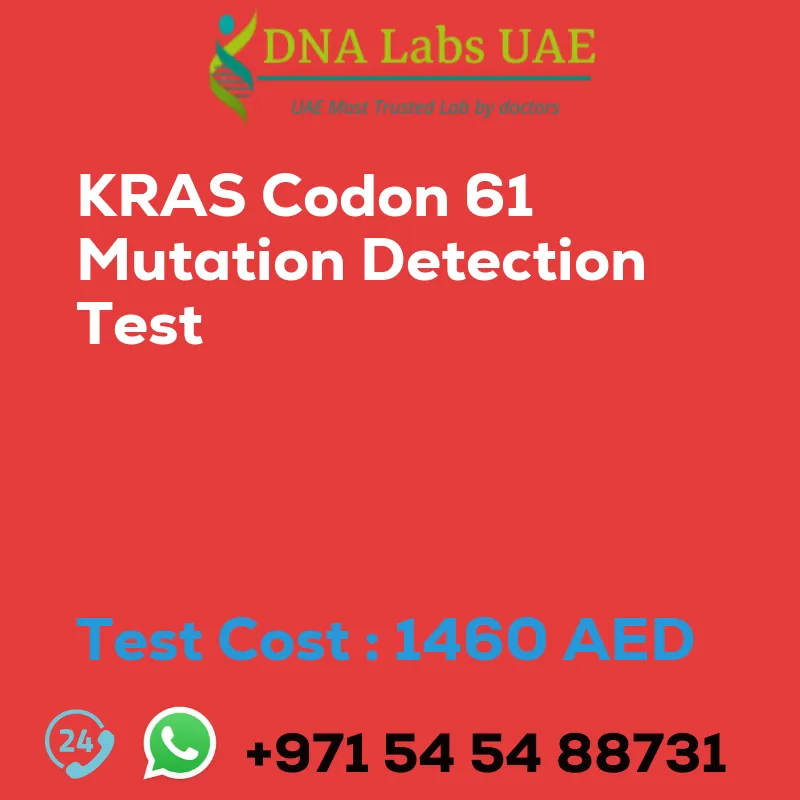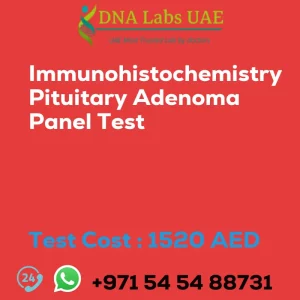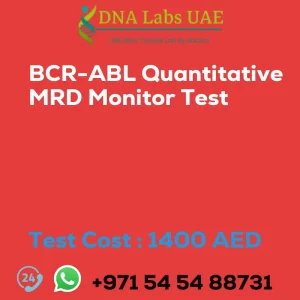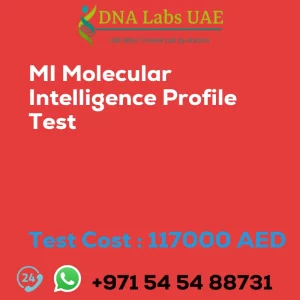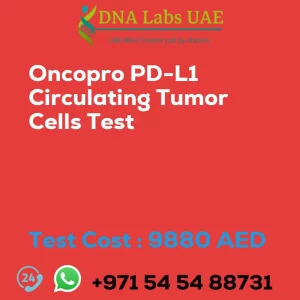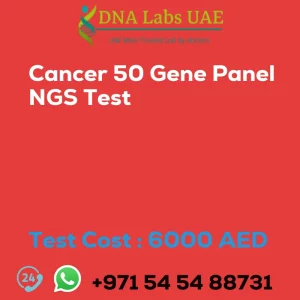KRAS CODON 61 MUTATION DETECTION Test
Welcome to DNA Labs UAE, where we offer the KRAS CODON 61 MUTATION DETECTION Test. This diagnostic test is used to identify mutations in the KRAS gene at codon 61.
Test Details
The KRAS codon 61 mutation detection test is a diagnostic test used to identify mutations in the KRAS gene at codon 61. The KRAS gene is involved in regulating cell growth and division, and mutations in this gene can lead to uncontrolled cell growth and the development of certain types of cancer, such as colorectal cancer.
Test Components and Price
The test is priced at 1460.0 AED. To perform the test, we require a fresh tissue sample in normal saline or a formalin-fixed paraffin-embedded block. The fresh tissue should be shipped refrigerated within 72 hours and should have at least 10% tumor tissue. Additionally, a duly filled NGS Test Requisition Form is mandatory.
Report Delivery
The sample should be submitted by 11 am, and the report will be delivered within 15 days.
Method and Test Type
The KRAS codon 61 mutation detection test is performed using the PCR method. It falls under the category of cancer tests.
Referring Doctor and Test Department
This test is commonly referred by Oncologists and is conducted in our Molecular Diagnostics department.
Pre Test Information
A duly filled NGS Test Requisition Form is mandatory for this test.
Importance of the Test
The detection of a KRAS codon 61 mutation can have important implications for treatment decisions. Certain targeted therapies may be more effective in patients with specific KRAS mutations. For example, patients with KRAS codon 61 mutations may be less likely to respond to certain anti-EGFR therapies. The KRAS codon 61 mutation detection test helps healthcare providers personalize cancer treatment by identifying specific genetic mutations that may impact treatment options and outcomes.
| Test Name | KRAS CODON 61 MUTATION DETECTION Test |
|---|---|
| Components | |
| Price | 1460.0 AED |
| Sample Condition | Submit fresh tissue in normal saline OR formalin fixed paraffin embedded block. Ship fresh tissue refrigerated within 72 hours. Block should have at least 10% tumor tissue. Duly filled NGS Test Requisition Formis mandatory. |
| Report Delivery | SampleSat by 11 am; Report 15 days |
| Method | PCR |
| Test type | Cancer |
| Doctor | Oncologist |
| Test Department: | MOLECULAR DIAGNOSTICS |
| Pre Test Information | Duly filled NGS Test Requisition Formis mandatory. |
| Test Details |
The KRAS codon 61 mutation detection test is a diagnostic test used to identify mutations in the KRAS gene at codon 61. The KRAS gene is involved in regulating cell growth and division, and mutations in this gene can lead to uncontrolled cell growth and the development of certain types of cancer, such as colorectal cancer. The test is typically performed on a tissue sample, such as a biopsy or surgical specimen, from a suspected cancerous lesion. The sample is analyzed in a laboratory to determine if there are any mutations present in the KRAS gene at codon 61. The detection of a KRAS codon 61 mutation can have important implications for treatment decisions, as certain targeted therapies may be more effective in patients with specific KRAS mutations. For example, patients with KRAS codon 61 mutations may be less likely to respond to certain anti-EGFR therapies. Overall, the KRAS codon 61 mutation detection test helps healthcare providers personalize cancer treatment by identifying specific genetic mutations that may impact treatment options and outcomes. |

